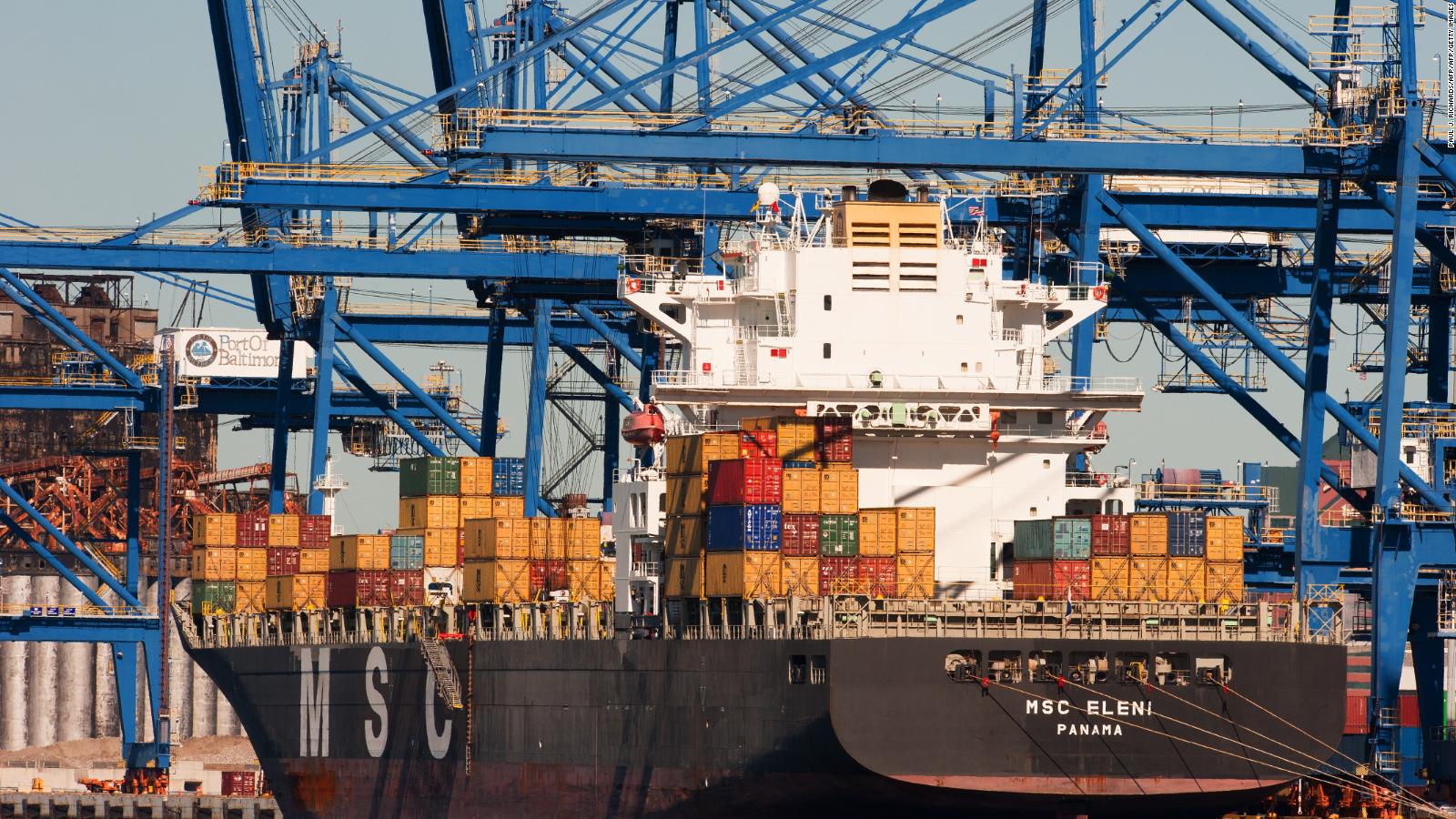IMF adjusts US and Mexico economic growth 2:33
(CNN) -
The global economic recovery after the coronavirus pandemic is weakening and risks are increasing, according to the International Monetary Fund (IMF).
The IMF on Tuesday cut its growth forecast for the United States in 2021 by a full percentage point, to 6%, the largest reduction suffered by any G7 economy in its latest World Economic Outlook report.
China and India, two of the world's largest economies, are facing a growing energy crisis
The cut reflects disruptions in supply chains and weakening consumption in the third quarter, the IMF said.
The revision comes days after Goldman Sachs cut its growth forecasts for the US economy for this year and next, citing weakening consumer spending and the end of government aid programs in the context of the COVID-19. 19.
The cut in US growth prospects reflects disruptions in supply chains and weakening consumption in the third quarter, the IMF said.
The IMF now expects the world economy to grow 5.9% in 2021, 0.1 percentage point less than the July forecast.
The outlook for 2022 remains unchanged.
Despite the modest review, the organization said economic risks have increased.
advertising
"The rapid spread of the delta variant and the threat of new variants have increased uncertainty about how quickly the pandemic can be overcome," he said.
"Political decisions have become more difficult, faced with multidimensional challenges - low job growth, rising inflation, food insecurity, the decline in human capital accumulation and climate change - with room for maneuver. limited".
Watch out for inflation and China's real estate sector
The organization also cut 2021 growth forecasts for China, Japan and Germany, the next largest economies in the world.
He said material shortages were weighing on manufacturing output in Germany, while in Japan emergency measures against the coronavirus applied between July and September had taken a toll on the recovery.
US CEOs lose confidence in the economy 1:02
The IMF added that the Chinese economy is expected to grow 8% in 2021, somewhat less than the forecast in July, due to the reduction in public spending.
He also pointed to "the disorderly defaults on large-scale corporate debt", including that in China's real estate sector, as a risk to financial markets that could "have a wide impact".
In general, the balance of risks for the world economy is "tilted downward," according to the IMF, which warned of rising inflation fueled by rising commodity prices and mismatches between supply and supply. demand after the pandemic.
Bottlenecks in the supply chain have led to shortages of a whole range of goods and an astronomical rise in shipping costs, which are driving up consumer prices.
Although the IMF expects inflation to return to its pre-pandemic range in most economies next year, it said a persistent imbalance between supply and demand could keep prices high for longer, leading to losses. central banks to raise interest rates earlier than expected.
Other risks to the growth outlook are that the US debt ceiling will not be raised, which could have "serious consequences for financial markets," he added.
The hardest hit economically in Latin America 3:10
Developing countries continue to fight the pandemic
The IMF was cautious about employment.
Disruptions in sectors such as hospitality and retail have caused the recovery of the labor market to lag considerably behind the overall recovery of the economy in most countries. Lower employment levels are expected to persist, reflecting "possible persistent health concerns, income support under special schemes or unemployment benefits cushioning loss of income, and accelerated progress toward automation."
Labor markets in developing economies have been the hardest hit.
At the same time, large disparities in access to vaccines and public aid between the richest and poorest countries are creating a "dangerous divergence in economic prospects," warned IMF chief economist Gita Gopinath.
Big disappointment: the US economy added just 194,000 jobs in September
"The outlook for the group of low-income developing countries has darkened considerably due to the worsening dynamics of the pandemic," he added.
While nearly 60% of people in advanced economies are fully vaccinated, and some now receive booster vaccines, about 96% of the population in low-income countries remain unvaccinated, according to the IMF.
This has important implications for the pace of the recovery globally.
While production in advanced economies is expected to return to projected levels before the pandemic in 2022, production in developing economies is expected to remain 5.5% below pre-pandemic projections in 2024 , which supposes a greater setback in the improvements of the standard of living.
Economy IMF




/cloudfront-eu-central-1.images.arcpublishing.com/prisa/3FI7KHR4GI7ABUOQDZ3ENWASZQ.jpg)




/cloudfront-eu-central-1.images.arcpublishing.com/prisa/KMEYMJKESBAZBE4MRBAM4TGHIQ.jpg)



